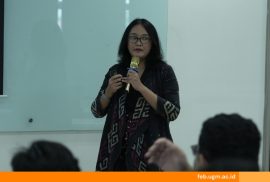Asian financial crisis is begun in 1997 in Thailand and it quickly spread to its surrounding countries. It is happened as there is lack of financial market discipline and moral hazard of economic agents. The essential indications of financial crisis which must be paid attention is overwhelmed liquidation in long term and It is followed by asset bubble effects, Financial institution and investor agents’ behavior, and the quick change of essential economic variable.
South Korea which has become one of the affected countries has to take efforts in overcoming the crisis. Restructuring phages are based on the private or corporate and financial restructuring simultaneously. This is performed by the government (government-led restructuring), consistently framework, as well as integrated and careful development. South Korean’s response policy covers six areas; immediate financial and corporate restructuring, strengthening of financial supervisory system, streamlining of insolvency procedures, advancement of corporate governance system, macroeconomic policy adjustment and strengthening of social safety net, and active participation in international financial architecture discussion. The measurement of Financial sector restructuring is to close 16.5% of the total of institutional financial and funding disbursement which is equal to 12% of income domestic brute. The strengthening of financial monitoring system is as well to be done independently in order to reinforce and ensure that the restructuring is still ongoing. Macro policy, such as interest rate policy, fiscal, and currency exchange are adjusted to the condition. The existence of social security network becomes essential for it supports community affected by the crisis.
It is therefore can be seen that South Korea perform private sector and financial restructuring as well as to build knowledge economy. Funding is poured through high-tech investment, and encourage more activities in research and development. Business activities is done according to global standard. Private sector’s accountability and transparency and governance is mainly improved. For addition, trust fortification is also required to support economics strengthening. Indonesia has not yet done it entirely. Lesson learned from South Korea, it is necessary to set a consistent framework to avoid moral hazard by building a monitoring institution/organization, establishing a regulation focusing on good governance system. Furthermore; it encompasses early warning system, social security networks, and reformation on labor system. Those are achieved for knowledge economy.
– Guest Lecture Master of Science and Doctoral Program, FEB: “Asian Financial Crisis and Korean Structural Reform Policy – Lessons for Indonesia” by Dr. Okyu Kwon (KAIST Graduate School of Finance, Former Deputy Prime Minister and Minister of Finance and Economy, Korea)
Source: angl




